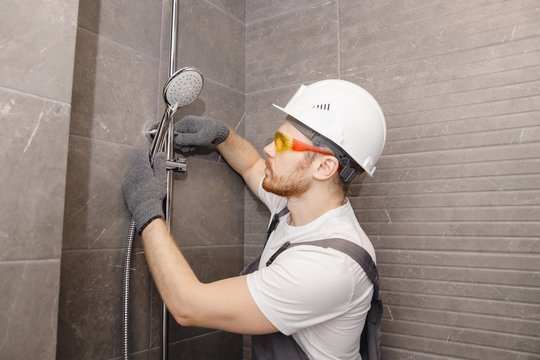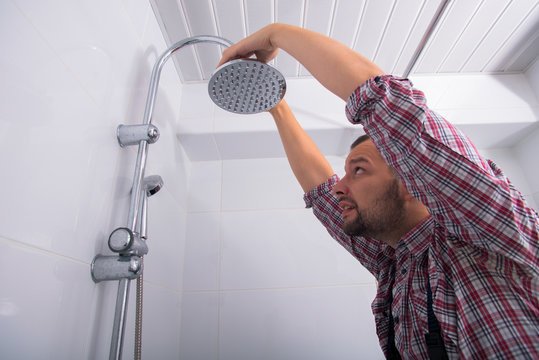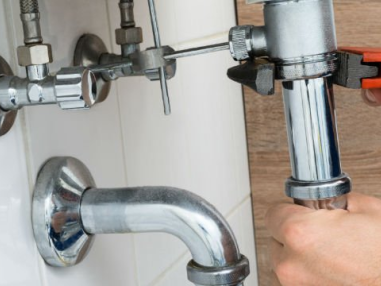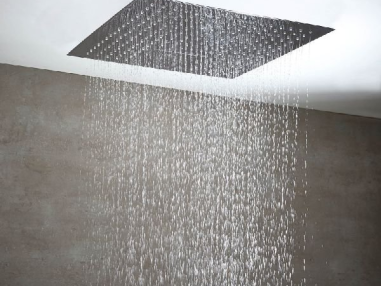Shower installation (wall mounted/ hand-held) (30 mins)


Shower installation can be a complex task depending on the shower type, your plumbing system, and your experience. Here's a breakdown to help you decide whether to or hire a professional
Factors to Consider for Shower Installation:
Shower Type: Simple stall showers with pre-fabricated walls and pans are more manageable for projects compared to custom tile showers.
Plumbing Accessibility: If the plumbing connections for the shower are easily accessible, it simplifies the installation process.
Your Skills: Installing a shower requires plumbing knowledge, working with different materials (walls, pan, fixtures), and ensuring watertight seals. Be honest about your experience and comfort level.
Shower Installation (Might be suitable for):
Simple Shower Kits: Prefabricated shower kits with walls, pan, and basic fixtures can be installed by with some plumbing experience.
Replacing Existing Shower with Similar Unit: If you're replacing an existing shower unit with a similar model and the plumbing layout remains unchanged, it might be a project.
Steps Involved in Shower Installation (General Overview):
Demolition (if applicable): Remove the old shower unit carefully, following safety precautions to avoid damaging pipes or walls.
Prepare the Shower Area: Ensure the subfloor is level and waterproofed according to building codes.
Shower Pan Installation: Install the shower pan according to the manufacturer's instructions, ensuring proper drainage and watertight seals.
Wall Panel Installation: For prefabricated shower walls, follow the instructions for assembly and secure them to the studs or shower pan.
Plumbing Installation: Connect the showerhead, faucet, and drainpipes to the existing plumbing lines, ensuring proper shutoff valves and leak-proof connections.
Shower Door Installation: Install the shower door according to the manufacturer's instructions, ensuring proper alignment and water deflection.
Important Considerations for Shower Installation:
Waterproofing is Crucial: Improper waterproofing in the shower area can lead to significant water damage in your walls and floors. Ensure you understand and can
properly implement waterproofing techniques.
Building Codes and Permits: Shower installations often require adhering to building codes and obtaining permits from your local authorities. Research the
requirements in your area.
Unexpected Issues: During demolition or installation, you might encounter unforeseen problems like damaged pipes or uneven walls. Dealing with these complexities might necessitate calling a professional.
When to Hire a Professional Plumber for Shower Installation:
Complex Shower Systems: For showers with multiple showerheads, body sprays, steam generators, or custom tile work, hiring a professional plumber with experience in these installations is recommended.
Extensive Plumbing Work: If the shower installation involves significant plumbing modifications or rerouting pipes, a professional plumber can ensure it's done
correctly and up to code.
Limited Experience or Confidence: If you lack confidence in your DIY skills or the project seems overwhelming, don't hesitate to hire a professional installer for a
secure and high-quality shower.
Finding a Qualified Plumber:
Get Recommendations: Ask friends, family, or local hardware stores for recommendations on reputable plumbers experienced in shower installations.
Check Online Reviews: Read online reviews to gauge customer experiences with potential plumbers.
Verify Credentials: Ensure the plumber is licensed and insured.
Get Quotes: Obtain quotes from several plumbers to compare pricing and services offered.
Additional Tips:
Shower Valve Selection: Consider the type of shower valve (pressure-balanced or thermostatic) for optimal temperature control and safety, especially in multi-user
households.
Shower Pan Material: Choose a shower pan material (acrylic, fiberglass, etc.) that suits your budget and desired aesthetics, considering factors like durability and
slip resistance.
Showerhead Options: Select a showerhead that meets your water pressure requirements and desired spray patterns.
By carefully assessing the shower type, your DIY experience, and the complexity of the project, you can make an informed decision about tackling shower installation yourself or hiring a professional plumber to ensure a safe, functional, and beautiful shower in your bathroom.

